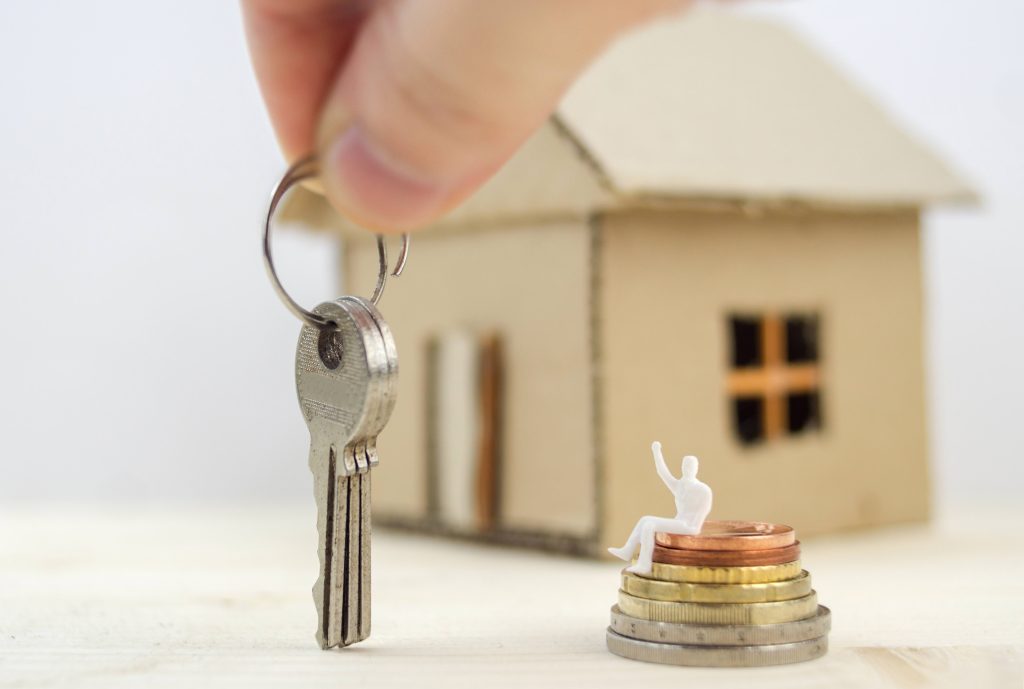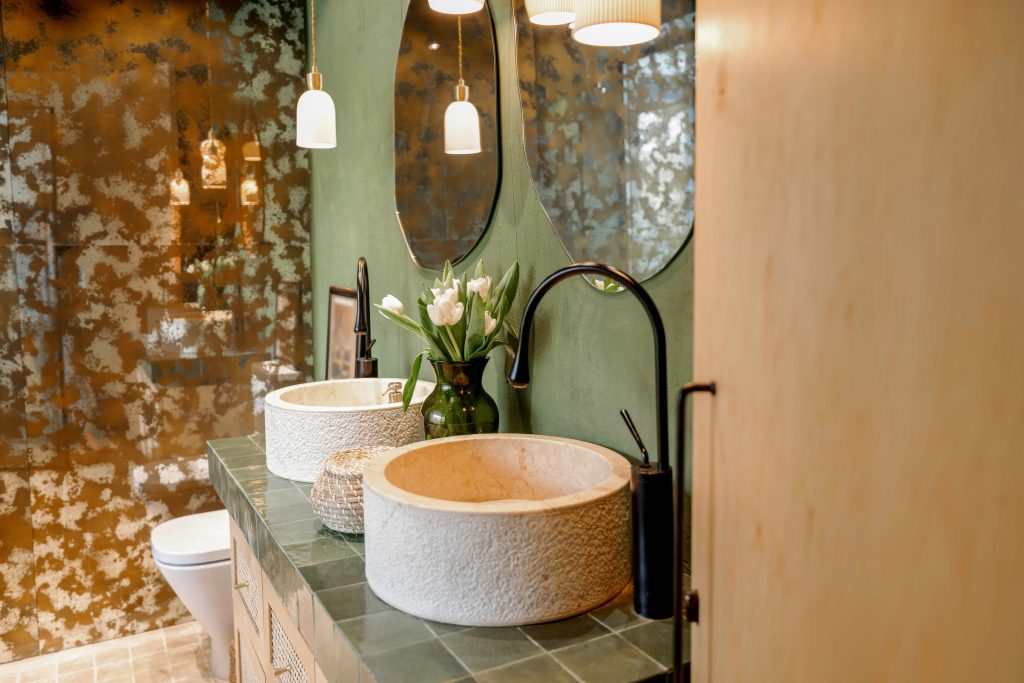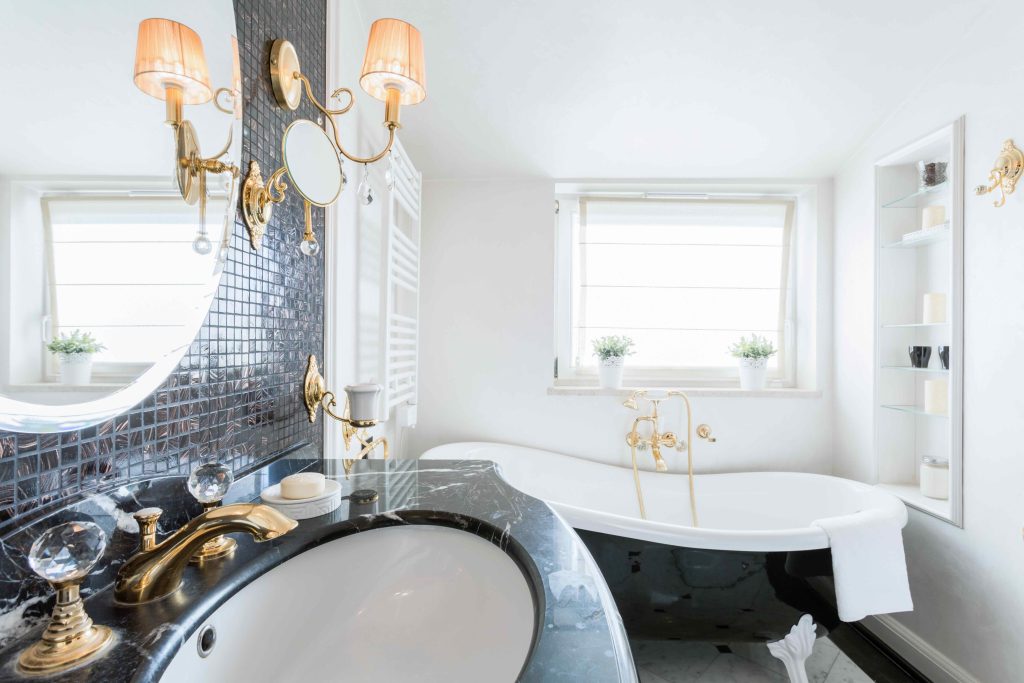If you’re spending your weekends pouring over Architectural Digest or Elle Decor, dreaming about a new floorplan or countertop, it may be time to consider an apartment renovation. But with the high cost-of-living in NYC, you might be wondering how to finance a home remodel, so you don’t have to carve the expenses out of your normal budget. If you’re ready to bring your collection of magazine clippings from inspiration to reality, read on to learn about some of the best loans for remodeling in New York and beyond.
Can You Finance a Home Renovation Project?
There are several ways to finance home renovations; although most of the loan options are reserved for homeowners. If you are a renter, you’ll want to work with your landlord first, before making any financial decisions on your own. Homeowners seek renovation loans in NYC for several common reasons: not having cash on hand to cover the expenses, wanting to reserve savings for other purposes, or wanting to make an investment in their home for resale value.
Top Six Loan Types for Renovation Projects
- Home Equity Loan – A home equity loan is a lump sum of cash that can be used as a remodel loan in NYC, borrowed against the equity of the home value, as determined by an appraiser from the lender. It comes with fixed interest rates and regular monthly payments, and lowers the amount of equity in the home.
- Home Equity Line of Credit (HELOC) – A Home Equity Line of Credit is similar to a Home Equity Loan, in that you are borrowing against the value of the home, but rather than a lump sum payment, you receive a revolving line of credit to utilize as needed during a pre-determined period of time (the loan term).
- Cash-Out Refinance – The third type of renovation loans in NYC that involves an existing mortgage is a cash-out refinance. In this refinancing process, a new loan, with new interest rates and an amortization schedule, pays off the original loan. The remaining balance is paid out to you.
- Personal Loan – If you do not want to modify your existing home loan, or put your home equity up as collateral, a personal loan may be a good option. It is often easiest to obtain a personal loan from a bank you already have a personal relationship with, and the loan will typically come with a fixed interest rate and regular monthly payments.
- FHA 203(k) Rehab Loan – A special type of loan, backed by the Federal Housing Administration and managed by the Department of Housing and Urban Development, is the 203(k) Loan. This loan type combines a purchase mortgage or a refinancing mortgage with the cost of repairs or renovations, and it can be a great option for home renovation financing in Manhattan. A Limited 203(k) loan covers up to $75,000 in repairs or renovations, and a Standard 203(k) loan can be used for more extensive renovations. Two important limitations to consider is that these loans can only be used on primary properties (no investment homes) and all work must be completed within 6 months of the loan closing date.
- Fannie Mae HomeStyle Loan – This is a conventional loan type that also combines the cost of the home loan or refinance, plus the cost of repairs or renovations. The amount of the loan is determined by the appraised value of the property after all work is complete, which can increase purchasing power. It does have more limitations than the 203(k) loan; however, like a higher credit score, renovation plans must be submitted as part of the loan process, and typically the work must be completed using a pre-approved contractor.
What Type of Loan is Best for Your Renovation?
Now that you have a sense for the best loans for remodeling, you may be curious about whether different types of loans are better for different types of renovations, based on flexibility and loan terms.
Bathrooms – If you are dreaming of a spa-like bathroom, and that is the only space needing a renovation, consider a personal loan. Personal loans typically are given for amounts less than $50,000, with payoff schedules of 2 to 7 years, and interest rates may be lower than a standard home refinancing. Similarly, the maximum amount of a Limited 203(k) loan is $75,000, which is a budget scale perfect for a renovation loan in NYC for a bathroom. Bathroom remodel projects can also be completed in under six months, which meets the terms of 203(k) loan program.
Luxury kitchens – For your perfect luxury kitchen, the FHA Standard 203(k) loan or a cash-out refinance would be great options. With budgets ranging from $50,000 to over $100,000, these loans provide more financial flexibility. With an experienced contractor, a kitchen remodel can be completed in under 6 months, thus fulfilling the terms of the 203(k) program. If there is significant plumbing, electrical, and structural work to be completed, and you don’t want to stress about the six-month deadline, the Cash Out Refinance would provide you with more flexibility.
Full apartments – To completely transform your entire apartment, your best home renovation financing options in Manhattan are likely to be Home Equity Loans or HELOCs, as long as you have earned enough equity in your home to cover the cost of the remodel. Homeowners prefer flexible loan types like this for big projects, because the process is similar to underwriting the original mortgage. If it makes you nervous to re-evaluate your mortgage conditions, think of this: you are re-investing your equity into the value of your home.
Brownstones – Designed to give homeowners the chance to renovate their home to increase value in the real estate market or even to fix up a fixer-upper, a FannieMae HomeStyle loan might be the perfect remodel loan in NYC for a complete brownstone makeover.
NYC and Manhattan-Specific Renovation Loan Programs
Although Home Improvement Program Loans (HIP) are no longer being offered through the City of New York through Neighborhood Housing Services, homeowners should take comfort in the range of other, nationwide programs highlighted above.
While contemplating these options, keep in mind the specific type of ownership structure for the apartment you live in. For condominium (condo) units, you own your specific unit, plus a share in common areas. In cooperatives (co-ops), you purchase shares into a corporation that owns the property, and then receive the rights to occupy a particular property. The act of refinancing a condo is similar to a single-family home, in that the lender can place a lien against the property until the loan is paid off. For these reasons, most standard home refinancing loans are applicable to condo remodels.
Cooperatives are a bit more complicated. Since you don’t technically own the physical property, lenders will typically require more information, including about the financial status of the co-op itself. Beyond that, the co-op board generally has to approve any new loans, which means more administrative time while the board approves the loan terms as well as your personal finances.
What to Know Before You Apply for a Renovation Loan
Now that you know how to finance a home remodel, you’ll need to gather the other necessary information for the process. Your credit score, equity, interest rate, and loan term length will impact the overall cost of your remodel.
First, you’ll need to know your credit score, which will impact the type of renovation loans in NYC that you qualify for. The amount of equity you have in your home. Home Equity Loans and Fanny Mae HomeStyle Loans require a credit score of at least 620 – 680. HELOCs are most often approved when the homeowner’s credit score reaches between (700-719). The 203(k) program is unique in that homeowners can be approved with a credit score as low as 500, if they are able to save for a 10% down payment. Personal loan credit score requirements (as well as the loan term lengths) vary widely. If you’re considering that option, you may want to consider speaking with multiple lenders.
Contacting multiple lenders is also important because interest rates change frequently, and can even vary based on location. If you are flexible on your timeline, an experienced lender may be able to guide you towards a closing timeline with slightly more favorable interest rates.
Once you know your interest rate and term length, if you’re considering a HELOC or Home Equity Loan, you’ll need to investigate the equity you have earned in your home, as most lenders will require that you have 15-20% equity in your home before you can borrow against it.
Finally, for HELOCs, you’ll want to consider the “draw period.” This is the length of time during which you can take out money, up to the limit. It can be easiest to think of this as a form of revolving credit, similar to a credit card. You can continue to “draw” money, as long as you don’t exceed the credit limit. Draw periods are commonly ten years, and you’ll need to pay interest or minimum payments on the amount you borrow. Once the draw period ends, you’ll start paying back principal and interest.
With so many complicated factors to consider, choosing a contractor experienced in working with lenders, such as MTK Contracting, will benefit you tenfold. When you’re calling contractors for quotes, ask them about their experience working with different home refinancing options. Hearing a confident and knowledgeable response should allow you to feel peace-of-mind that you will have a trusted partner during the design-build process.
Trust MTK Contracting
A home renovation is one of the most important projects a homeowner will face, whether for a marble-covered bathroom to recall an Italian villa, or to bring the floorplan of a brownstone into the 21st century. With so much to think about and stress over, choosing the right type of financing, the right lender, and the right contractor will make the process seamless. If you’re not sure where to start, consider starting with a free consultation call with MTK Contracting to discuss budget, design, and next steps. With more than a decade of experience in NYC and the tri-state area, they can help guide you through the details of the question: what are the best loans for remodeling my NYC apartment?



